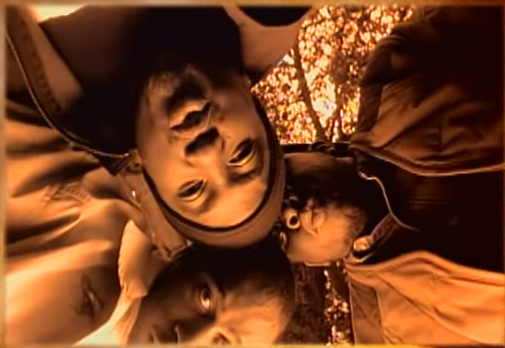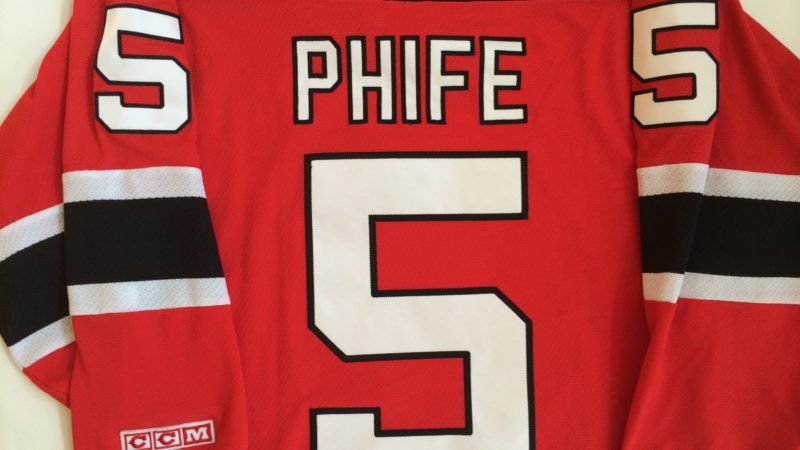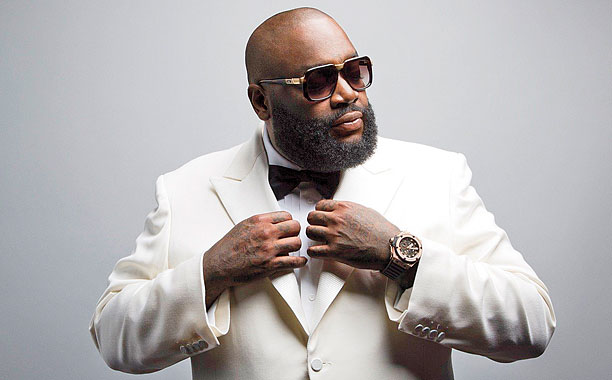This week, in remembrance of the Notorious B.I.G, ‘There and Back Again’ will reminisce on the days when Biggie Smalls was New York’s newly crowned prince of rhyme.
The summer of 1994 was a confusing time for me. After having lived in Lithonia, GA for eight years, my family was returning to New York. On the surface I was excited. During the past few years, I had built New York up in my mind as a place I should never have left. It was where I really belonged. However, my true feelings were a bit different.
In the two years prior to moving back to NY, I had made the acquaintance of two guys who would become brothers to me. Our friendship saved my life by making high school bearable for me. Now, I was being forced to leave the two best friends I ever had.
A few months before the big move, I went to stay at my uncle’s co-op in Mount Vernon. I tried to use that time to get reacquainted with New York. One of the things I looked forward to experiencing was the small conveniences. For instance, Hip-Hop magazines were more readily available in NY than they ever were in Lithonia. You couldn’t travel very far without passing a magazine rack or a newsstand, even in Westchester.
One day, I walked into the local bodega (the kind with one of those huge Optimo signs overhead) and saw the latest issue of Rap Pages. On its cover was Biggie Smalls, a rapper I recognized from his contribution to the Who’s The Man Soundtrack, “Party and Bullshit.” I liked the energy of the song but I wasn’t that impressed, ditto for his performance on the remix to Supercat’s “Dolly My Baby.” Nothing about duke really stood out to me.
New York rappers often came packaged with a certain amount of pre-release hype. I was somewhat aware of this phenomenon through years of reading The Source and listening to Tone’s observations of the music industry, but I had never been in the eye of the storm, so to speak. That summer and fall I got to witness the machine in action, up close and personal.
My God Brother Jason also lived in “The Vernon.” He had a dub of Biggie’s debut, or at least certain songs from it, that leaked months before its official release date. I had just finished reading a blurb about the album in the latest issue of Vibe, which had characterized it as an east coast answer to west coast gangster rap. Rap Pages had even compared it to Ice Cube’s classic Amerikkka’s Most Wanted.
 I made a copy of the dub, which turned out horribly since it was a copy of a copy. It sounded like Biggie was performing underwater. The tape was was a bad dub of the mythical “B.I.G Mack Attack,” that came packaged like a fast food hamburger. I was excited, and called my friends in GA to brag about having heard this new material before anyone.
I made a copy of the dub, which turned out horribly since it was a copy of a copy. It sounded like Biggie was performing underwater. The tape was was a bad dub of the mythical “B.I.G Mack Attack,” that came packaged like a fast food hamburger. I was excited, and called my friends in GA to brag about having heard this new material before anyone.
My cousin Tone had always hated the way I appeared to go along with “hype.” I came to see him as a killjoy, mostly due to the comments he would often make while rifling through my music collection: “You be putting money in these niggas pockets.” He basically saw me as a groupie, even though he didn’t say it that way.
His sentiment was reflected by many of the New Yorkers I came to know that year, many of whom saw the idea of actually buying an artist’s album as a form of dickriding. Conversely, Georgians seemed to root for their hometown heroes more, even if they occasionally talked shit about them. New Yorkers seemed to greet the success of their own with skepticism and dismissal.
As I began my senior year at New Rochelle High School (my first and last year there) Hot 97 was hyping anything Bad Boy-related. As much as I hated to admit it, I saw just why my cousin resented such blind consignment. The media had anointed B.I.G king of the ball, and the public seemed to have very little say. In Georgia, when a local artist became popular, it was more gradual and organic. There was no advance buzz or hype. It was all word of mouth. One guy would hear a song, like it, and tell his friends about it. Next thing you knew, the song was everywhere. In New York, word of mouth worked in tandem with mixtapes, mixshows, and magazines.
The NY system had its drawbacks. It wasn’t exactly fair or unbiased, but it also had undeniable benefits. Every now and then, a worthwhile artist got shine against the odds. B.I.G was that kind of artist, but my own prejudices prevented me from seeing it at the time. Upon hearing the finished version of Ready to Die, I was thoroughly…disappointed. The album had been considerably altered from the leaked version I’d gotten used to. Beats had been changed, songs excised and new ones added.
One addition in particular annoyed me: “Big Poppa.” The song was a blatant attempt to ape the G-Funk sound, and unapologetically commercial to boot. It used a sample from the Isley Brothers classic “Between the Sheets,” which was very popular at the time. On top of everything else, B.I.G’s vocal inflections sounded vaguely similar to 2Pac’s (more on that next entry). I’d inherited Tone’s disdain for beat jacking in spite of myself. Other changes also annoyed me. The sample from El Debarge’s “All This Love” had been removed from “One More Chance,” and replaced by some east coast minimalist bullshit. The gritty, New York gangsta album I initially liked had been retooled into some populist garbage.
My disappointment with the album made me resent its success. When Method Man’s debut LP Tical dropped about a month or so later (to harsh criticism from the few “friends” I had made by then), I championed that album over Ready to Die. Deep down in my heart, I knew Ready to Die was the better album, but Tical was a Wu affiliated project aimed at slightly different listener. It was more on my wave length.
Over the next couple of years, I hated B.I.G, not so much for his music, but for what I felt he represented. He was my first lesson in how New Yorkers actually received Hip-Hop. There were a lot of things that factored in to that reception, many of which had nothing to do with B.I.G’s actual merits as an artist. The New York state of mind was a hard thing for me to get a grasp on. It eluded me for my first few years “back home,” regardless of the artificial connection I felt to the place. I began to see that my perception of the music had definitely been impacted by my years in Lithonia. However, I would soon learn to compartmentalize that.
Follow Malice Intended on Twitter @ http://twitter.com/renaissance1977
Follow Us on Twitter @ http://twitter.com/planetill
Become a citizen of Planet Ill. Join our Forums
Join Us on the Planet Ill Facebook Group for more discussion
Follow us on Networked Blogs






One thought on “There and Back Again: B.I.G Mack Attack”